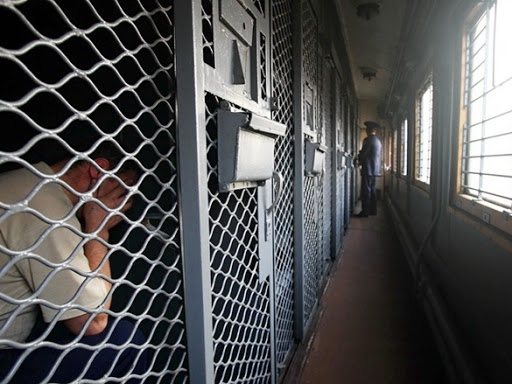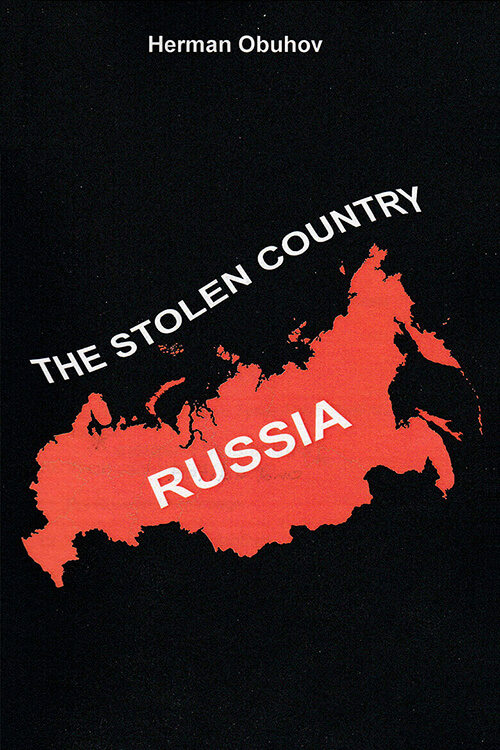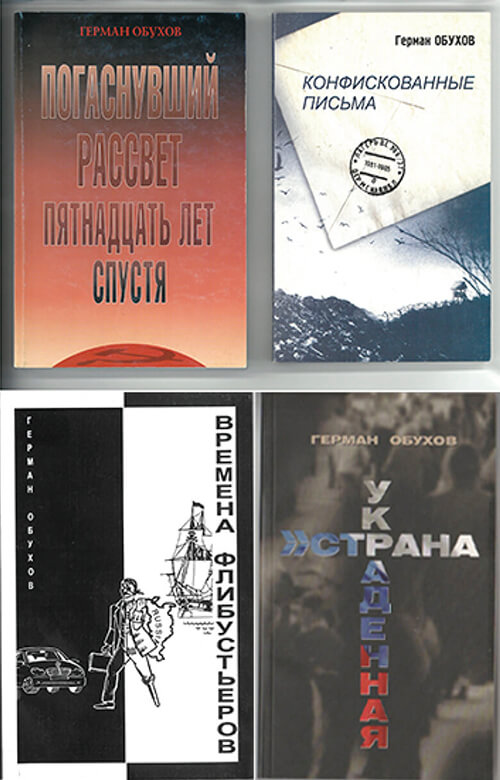At the end of February, I received the Supreme Court’s decision to uphold my sentence. It meant that a trip was coming soon and I’d see the labor camp I pictured on an island surrounded by thorns and water for myself in the spring. At the beginning of March, the warden came into the cell and grunted,
“Take all your belongies.”
I was transferred to a cell with no neighbors and on the same day I was invited to their barber’s, where I took my first steps to becoming a prisoner – they cut off all my hair. I knew then that I could be transferred to the labor camp at any time. And so I was. A day later, early in the morning, the door to the cell opened and the guard ordered,
“Get up, you have 15 minutes to pack, the car is already here.”
“Sons of bitches,” I thought, “why couldn’t they say this earlier?”
However, there was nothing to pack: the bag with my stuff and some groceries received from my parents and Irina already lay on the neighboring bunk bed, and it did not take much time to dress and wash myself. Shortly after, I was driving in a prison van along the night streets of Leningrad, accompanied by a special convoy of a lieutenant and a sergeant. When the prison van stopped and the door opened, I was ordered to get out. As soon as I stepped on the ground, another voice in the twilight shouted,
“Rush off to the carriage!”
Instead of running, I stopped and hissed angrily, “What?!”
“Leave him alone,” the convoy lieutenant stood up for me. There was a Stolypin carriage ahead with dogs barking nearby, and a guard duty with assault rifles ready. Having gone twenty meters to the carriage, I saw that it was not that easy to climb the steps with my bag, since there was no platform. Taking my bag down from my shoulder, I handed it to the guard who was standing in the doorway.
“Take the bag.”
“What?” he giggled in surprise.
“Take it,” ordered the lieutenant following me.
“We are no porters here,” the guard said gruffly, but took the bag and put it on the carriage floor regardless.
Climbing up the carriage, I went after the guard to the farthest compartment with only three iron berths above one another.
“Make yourself comfortable,” the escort officer closed the strong iron rod door behind me, “you’ll be the only one in here.” The moment he walked away, I heard a slightly hoarse voice from the next compartment.
“Hey, neighbor. What is your article?”
“Seventy,” I gave a curt answer.
“What is it?”
“Anti-Soviet Propaganda,” I didn’t really feel like talking to anyone here.
“So you’re a politician then?” he answered respectfully.
“Yes, a politician,” I confirmed.
The carriage stood still for three hours, then everyone felt a gentle push from a maneuverable diesel locomotive and the carriage was dragged somewhere. Another push, as we were hooked on something followed by a slow motion. An ajar window leaf in the hall showed that the carriage was entering the passenger station.
“That’s Moskovsky Railway Station!” I recognized the platform. People were walking around the platform and did not suspect that prisoners convicted under various articles were sitting in the carriage two steps away from them. One girl approached the window to peep in it out of curiosity, and shrinked back immediately. Their train stood at the platform for an hour tops, and needless to say, no one got into their carriage.

The Stolypin carriage, named after Peter Stolypin, Minister of Internal Affairs of Russia in 1906-1911 and ‘inventor’ of the carriage, was an all-steel car with windows barred only on one side of the passage, along which one of the escort officers walked. There was only a metal wall on the other side, and inside it was divided into compartments for six people, although escort officers packed up to twenty people. One compartment was intended for particularly dangerous criminals and had only three berths. Naturally, no bed sheets were provided.
The train was travelling very slowly, stopping at every waystation. The guards told me that it was a mail and passenger train and we would be travelling for a long time. The travel ration I received in the KGB prison remained intact, consisting of salted fish and dry bread. Having received a parcel from my parents just before leaving the KGB prison, I had the opportunity to eat better food. The entire carriage with criminals ate herring, drank water or tea, and constantly asked to use the bathroom. Since the guards did not hear such requests from me, they suggested themselves that I take a walk to the bathroom.
“Are you a yogi by any chance?” they asked me with a joke. This amused me, but the privilege to travel separately in an empty compartment I had being a ‘particularly dangerous’ allowed me to stretch out on the lower berth and doze off all the way. Perm was the final destination; a truck for prisoners was waiting for us at the railway station right on the platform and we got into it directly from the carriage. The first thing they did in the Perm transfer prison was to search me.
“Come on, show what’s in your bag,” the warden ordered me rather boorishly. There was no point in arguing with him that he did it himself. When it came to the cologne, which I took out from the bag, he was wide-eyed.
“What is this?” he stared at the bottle.
“What do you mean ‘what is this’? It’s cologne, don’t you see?” I answered like nothing happened.
“You …,” he started, but his tone immediately changed. “Man, who allowed you that? You are not supposed to have it here, pour it into the sink over there.” After that he lost all interest in me and the search ended.
I was taken to a fairly spacious cell for four, where two were already sitting and we became acquainted. One of them had just arrived in Perm, the other was brought from the labor camp to have talks about remorse and plea for mercy (the so-called ‘prevention’). Both had the same article as mine: the Anti-Soviet Agitation and Propaganda. The person from Ukraine was doing his second bid and got the maximum under this article – seven years of camps and five years of exile; the one who was brought from the labor camp had five years of camps, of which he had already served three, and three years of exile. Both were willing to initiate me into local procedures and tell me what was awaiting me.
“There are three political camps in Chusovsky District here – the 35th, 36th and 37th. The latter is the smallest and is said to be the calmest. These are strict-security, and there is also a maximum-security barrack adjacent to the 36th camp, but there are few political prisoners. All these camps are considered to be “political”, there are no criminals. Only our article, 64th Treason and terrorism. If you get into the 37th, count your blessings…” the man from the labor camps told me.
“How long will it take to get there?” I asked.
“Eight hours on average,” he explained, “they don’t even give rations for such a journey.”
I parted with them two days later. I was put again in a separate compartment of the Stolypin carriage and we arrived at a waystation in the early hours. The platform in front of the carriage was poorly lit by two spotlights. Everything around was buried in the snow. When everyone got off the carriage, senior escort officer ordered the rest of the convicts (at least forty people),
“Sit down!”
I kept standing. A sergeant with an assault rifle came up to me and strictly said,
“Do you need a special invitation?”
Someone shouted to him from the twilight,
“Drop it, he’s a politician, we’re already here to pick him up.”
Two men: a soldier with an assault rifle and a lieutenant, came out of a distant truck for prisoners. They went to the guard officer and took a package from him, then came up to me.
“Let’s go, the taxi is waiting.”
“Is it still far?” I was eager to get to the labor camp as soon as possible.
“It’s close, close…” the lieutenant answered in almost a friendly manner, “we’ll be there in about twenty minutes if we drive slowly”.

